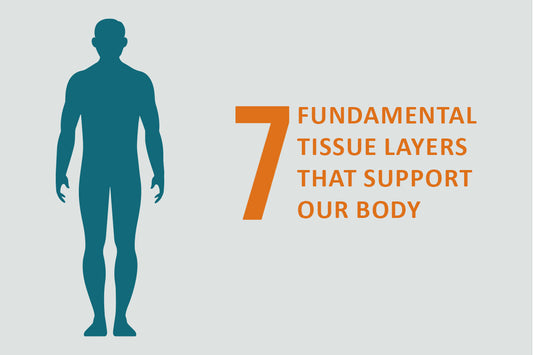Maintaining a healthy lifestyle is crucial for keeping your immune system strong and functioning well. In this blog, we'll explore how various lifestyle choices can either boost your immune health or weaken it, and how you can make positive changes to fend off illnesses like the common cold and flu.
Eat a Healthy Diet
Eating healthy is one of the most effective ways to support your immune health. A diet rich in fruits and vegetables provides essential vitamins and minerals that are vital for maintaining a healthy immune system. These nutrients help in the production and function of white blood cells, which are key players in your body's defense mechanism against infections.
Including a variety of foods in your meals ensures that you get a broad spectrum of nutrients. For example, citrus fruits, berries, and leafy greens are excellent sources of vitamins like vitamin C and E, which can help boost your immune function. It’s not just about what you eat, but also how you supplement your diet. Taking a mineral supplement can also be beneficial, especially if you find it challenging to consume enough nutrients through food alone.
Regular Physical Activity
Regular physical activity is a cornerstone of a healthy lifestyle and plays a vital role in enhancing your immune system. Engaging in moderate exercise, such as brisk walking, swimming, or cycling, for at least 150 minutes per week, can have profound effects on your health. Exercise helps to boost the circulation of immune cells in your body, making it easier for them to patrol and defend against pathogens.
Moreover, regular exercise can reduce inflammation and help your immune cells to regenerate regularly. This renewal process is crucial for maintaining a robust immune function. It's important to find a balance that suits your lifestyle and fitness level; overdoing it can be just as harmful as not exercising at all. After intense physical activity, your immune system may be temporarily lowered, which is why maintaining a balance is crucial. Consistency and moderation are key elements in using exercise to boost your immune health.
Sleep Nutrition
The concept of sleep nutrition emphasizes the impact of sleep on overall health, including immune function. During sleep, your body undergoes critical repair processes that involve the immune system. This is when the body produces and distributes key immune cells like cytokines, T cells, and interleukin 12, which play crucial roles in immune response.
Poor sleep quality or insufficient sleep can lead to a decrease in these immune cells and an increase in inflammatory cytokines, which can weaken your immune system. To improve sleep nutrition, it’s essential to establish a regular bedtime routine that promotes relaxation and prepares your body for sleep. Avoiding stimulants such as caffeine and electronic screens before bed, maintaining a comfortable sleep environment, and sticking to a consistent sleep schedule even on weekends can greatly enhance the quality of your sleep.
Additionally, certain foods and beverages can promote better sleep. For instance, consuming foods high in magnesium, such as almonds and spinach, or beverages like chamomile tea, can help improve sleep quality. Integrating these practices into your daily life will not only boost your immune function but also enhance your overall health and well-being.
Lifestyle Choices and Their Impact
The choices you make every day can either support or degrade your immune health. Habits such as smoking or excessive alcohol consumption hurt immune function. These habits can suppress the effectiveness of your immune system and make you more vulnerable to infections like cold and flu.
Stress is another factor that can weaken your immune system. Chronic stress leads to elevated levels of cortisol, a hormone that, when consistently high, can inhibit the effectiveness of the immune system. Engaging in activities that reduce stress, such as meditation, yoga, or even spending time in nature, can help maintain a healthy immune system.
Conclusion
Your lifestyle has a significant influence on your immune health. By making conscious decisions to maintain a healthy lifestyle through eating healthy, engaging in regular physical activity, ensuring adequate sleep, and managing stress, you can boost your immune system and enhance your body’s ability to fend off and recover from illnesses. Remember, these lifestyle changes not only improve your immune health but also enhance your overall well-being.






